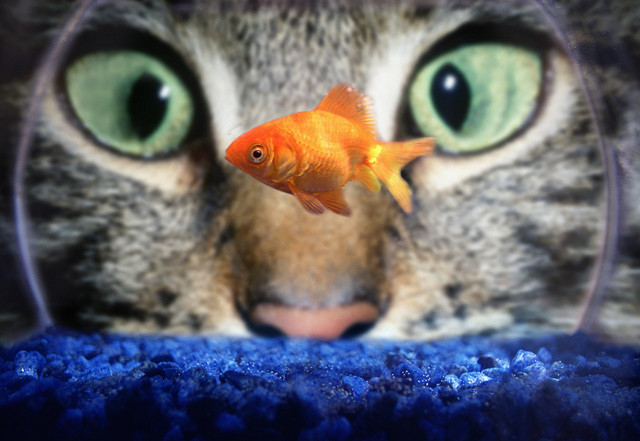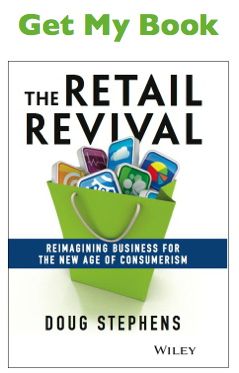By Doug Stephens

My friend Eric Garland a.k.a. @ericgarland recently tweeted,
“We encourage work-life balance but we reward obsession.”
So true, I thought. In fact, I’d been thinking about obsession and society’s fascination with it quite a bit myself. Indeed, if you look closely at many of the people, events and things that are most highly revered in our society, you will find an obsession of some sort at their heart.
Obsession
Famed Belgian Surrealist René Magritte was inexplicably obsessed with images of sea, sky and spheres. In fact, almost all of his paintings contained one or more of these objects. Similarly, the famous American photographer Ansel Adams had a well-documented obsession with water – shooting it in every conceivable form, light and state of motion. Henry Ford was obsessed with assembly line efficiency. Sam Walton was transfixed with driving down prices for average Americans. And Apple founder Steve Jobs was fanatical to the point of distraction with every element of Apple product design; frequently lashing out at staff for falling short of the level of perfection he demanded.
I believe that, beyond the actual things each of these people created or sold, it was their obsession that we as consumers were drawn to. Because frankly, obsession is fascinating. The maniacal, single-minded pursuit of something we may never fully understand but that somehow translates into terrifically stunning, unique and often tormented creations. And to be sure, it is often this level of obsessive concentration and practice on a single thing that is required to reach what Malcolm Gladwell suggests is the threshold of virtuoso status – the ten thousand hour mark. Obsessives reach that mark quite unconsciously.
So yes, I agree with my friend Eric. We do preach balance but reward obsession and, I would argue, with good reason, as obsession often produces amazing works.
But I would add to this one other somewhat unlikely trait that consumers are also drawn to – not only in people but also in brands. It is conflict.
Conflict
Everybody loves a fight but why? The 2013 book Attracted to Conflict suggests that “conflict is inherent in virtually every aspect of human relations, from sport to parliamentary democracy, from fashion in the arts to paradigmatic challenges in the sciences, and from economic activity to intimate relationships.” There is something about conflict that we find enormously compelling. It touches us at a deeply emotional and almost primal level.
And so, as consumers, we’re naturally drawn to brands that are seen to be engaged in conflict, either with a competitor, an idea or a social condition. Chipotle Mexican Grill fights against industrial food production. Patagonia clothing struggles to save the world from environmental destruction. App-ordered limo service Uber is fighting the unionized transportation status quo and miles of political red tape. Tesla is battling the pervasive belief that electric cars can’t be reliable, luxurious or cool. And all of these brands are arresting consumer attention by virtue of their emphatic willingness to battle for what they believe is right. The conflict, the struggle, the fight is what grabs us and keeps us watching – rooting even – for the brands we side with.
The greatest brands embody both
They identify their point of obsession – the single idea, cause or battle cry that  galvanizes every member of their organization. The obsession brings clarity of mission, purpose and even tactics. And they clearly identify the enemy, be it a competitor, a paradigm or simply the status quo and go to war with it every day. The fight and sense of purpose beyond sales, profits or the next quarterly report is what keeps them alive and invigorated. The fight, in essence, becomes the true mission.
galvanizes every member of their organization. The obsession brings clarity of mission, purpose and even tactics. And they clearly identify the enemy, be it a competitor, a paradigm or simply the status quo and go to war with it every day. The fight and sense of purpose beyond sales, profits or the next quarterly report is what keeps them alive and invigorated. The fight, in essence, becomes the true mission.
And so, much like the great stories of Greek mythology, the themes of obsession and conflict seem to play out as a common thread among great brands. After all, like the great myths, great brands are in essence brilliantly told stories unfolding before our eyes.
_____________________________________________________________________________
Doug Stephens is one of the world’s foremost retail industry futurists, advisors and speakers and the author of the groundbreaking book The Retail Revival: Reimagining Business For The New Age of Consumerism.

